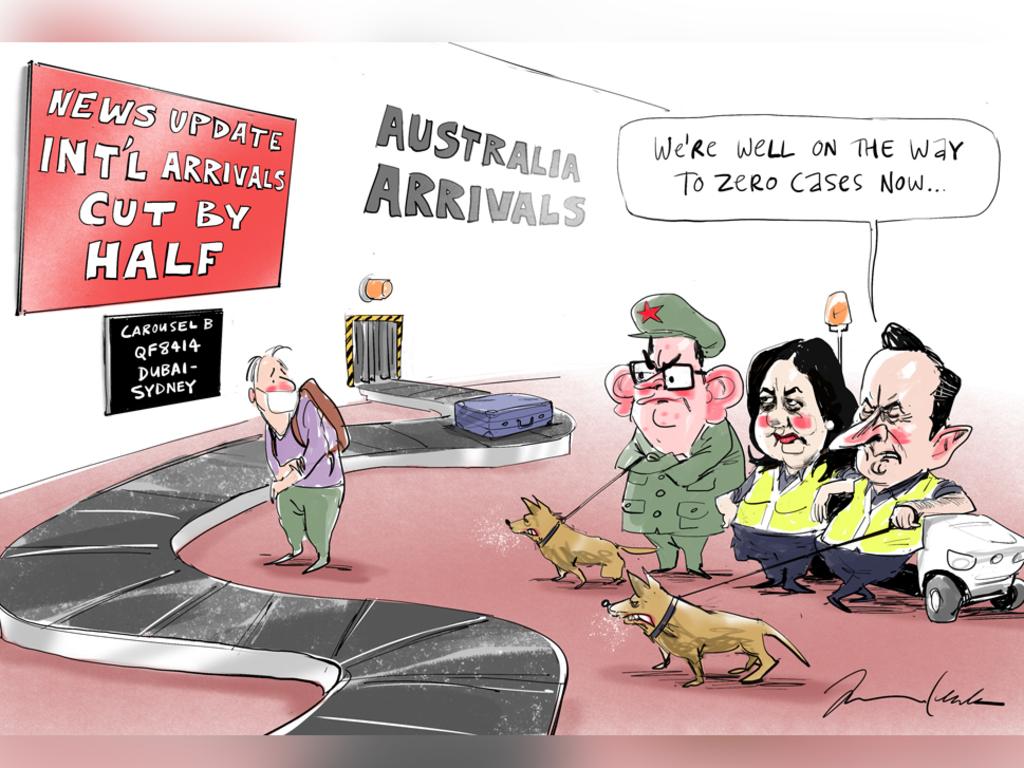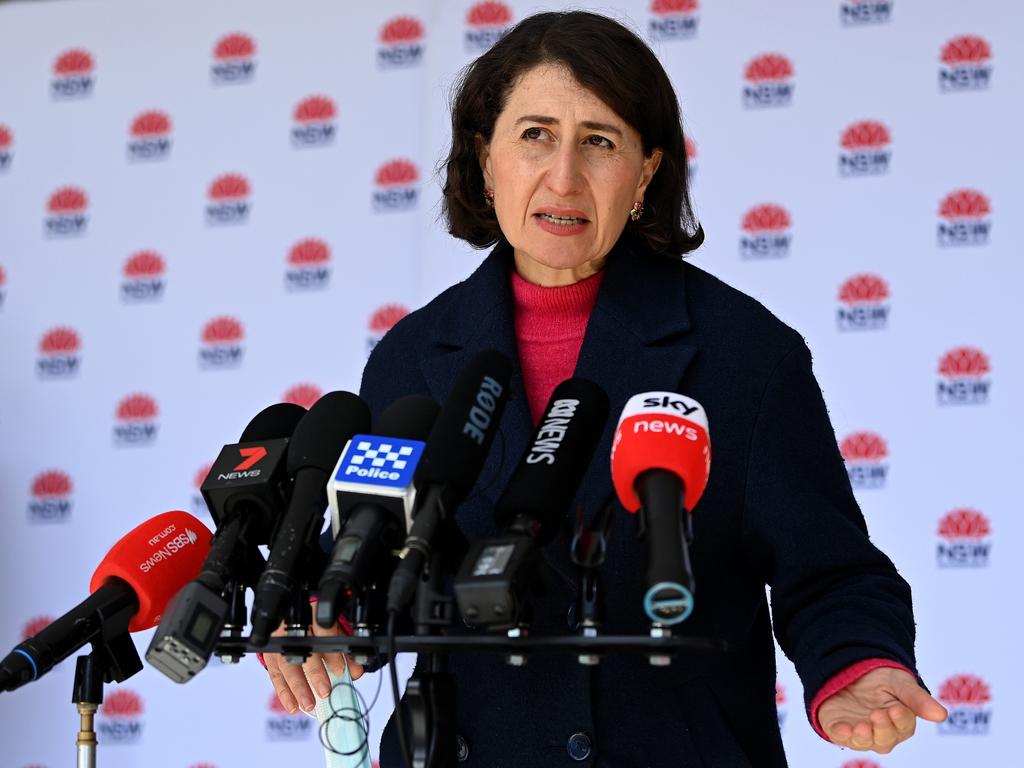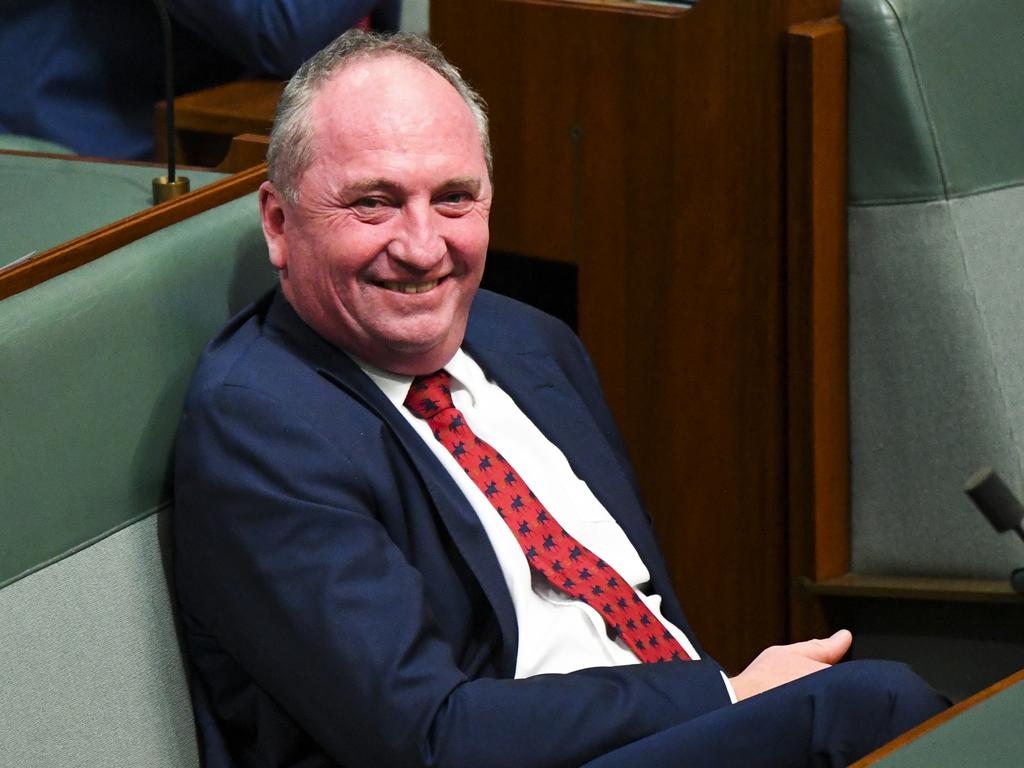Vaccine crisis coverage reveals the rot at the core of our vital institutions


Let’s start with politics. Former Coalition prime minister John Howard in 2014 outlined what he thought was wrong with political leadership: politicians lacked the skills to advocate for change. Successful politicians needed to be able to persuade voters of the merits of their plans, he said.
Howard was right. He risked government after only one term in office to take a proposal to the 1998 election to introduce a goods and services tax. In the 1980s, prime minister Bob Hawke and treasurer Paul Keating had risked the wrath of their own trade union base to decentralise the wage-fixing system and deregulate the economy.
It is impossible to imagine a modern Coalition leader risking government for a new tax, and even less likely any Labor leader would risk supporting a pro-business economic agenda or wage reforms that could alienate the trade unions. And it’s not just for lack of rhetorical skill. In part, the unwillingness to take leadership positions reflects the negative impact of a partisan media with a short attention span, desire for cheap “gotcha” moments and an inability to engage with complex ideas.
Keating did a lot of media advocacy and in private took every opportunity to persuade political journalists and editors of the merits of opening up Australia’s economy. The ABC and the former Fairfax newspapers in Sydney and Melbourne were hostile to his economic agenda, a program that set the nation up for 30 years of continuous growth and 20 years of improved productivity.
The media’s performance in the present vaccination crisis has been obtuse: few reporters have been prepared to acknowledge the real problem is the ATAGI (Australian Technical Advisory Group on Immunisation) medical advice that shook confidence in AstraZeneca – the vaccine that saved Britain. That began to change by the end of last week as senior columnists realised it is important that the government tackle vaccine hesitancy in the changed risk environment presented by Covid-19 outbreaks in three states.
Can anyone imagine Keating, Howard or Hawke failing to take every possible media opportunity to challenge medical advice that undermined a vaccine rollout in the middle of a pandemic? Prime Minister Scott Morrison last Wednesday finally started rolling out a rhetorical position on AstraZeneca that he should have used months ago. ATAGI and the federal government knew the Delta variant was ravaging the northern hemisphere, and knew winter was coming here.
Yet the vaccine rollout’s problems also highlight a decline in the effectiveness of the Australian Public Service. Why couldn’t the federal health department manage the logistics of vaccine distribution from Canberra to the states? Why the need to appoint an army general? Remember, this department runs no hospitals – they are a state responsibility.
Ditto the federal education department, which runs no schools. Yet its new primary school national curriculum actually reverses its 2016 switch back to phonics after 30 years of reading wars. This under a conservative federal education minister. Its new maths curriculum is even worse, rejecting evidence that direct instruction works best in the early learning of mathematics.
We know from international PISA tests of mathematics skill that Australia’s education performance in the subject has collapsed. Our bureaucrats are going the wrong way.
Reflect on the Department of Defence. How can we possibly still be thinking of spending $90bn for French submarines that have never been built anywhere? Remember all the problems we had building the Swedish-designed Collins Class submarine in Adelaide in the early 1990s? Where is the corporate memory in Defence, let alone in the media or among politicians?
One of the nation’s smartest thinkers on public policy, politics and education, is Glyn Davis, chief executive of the Paul Ramsay Foundation. Professor Davis headed the Premier’s Department under Petter Beattie in Queensland before becoming vice chancellor of Griffith University from 2002-2005, and vice chancellor of Melbourne University from 2005-2018.
Delivering the Jim Carlton Integrity Lecture in Melbourne in early May, Davis said the flow of traditional public service work to consultants was eroding the expertise of government departments and “diminishing the capacity of bureaucrats to properly learn from mistakes for the benefit of future program design”. An annual bill of $1.2bn for advice from eight consulting firms “as a way to contract service delivery … has pushed aside traditional public service advice,” he said.
Consultants PwC and Accenture were contracted to manage this year’s vaccine rollout and McKinsey last year to advise on vaccine strategy. You will never hear the partisan ABC or Guardian Australia question their advice. This column spoke to Davis on Wednesday about political and media leadership failures. His comments on modern media were telling.
“Today’s chat is the longest discussion I have had with a journalist for many years,” he said. “When people ring you up now for comment they’ve got about three minutes. (They say) ‘I just need you to say this, this and this.’ They’ve almost written the quote for you … because they’re under such time pressure. The media is less forgiving and more accusatory. The quality of scrutiny is much less, and how do you build a long-term relationship if you’re a journalist … under such pressure?”
Davis blames lack of life experience for the decline of our politics.
“I think the preponderance of former staffers in politics and the narrowing of the system … so that basically from the moment you start work you are working for a political career, has narrowed greatly the skill set. It’s a structural change. It’s not about the people. There are always good people. It’s how we choose them and who we choose.”
In the era of “clickbait” news online, journalists write things that will generate traffic from a section of their readership that agrees with what’s written. The political riposte to this kind of journalism has been a rise in the number of journalists working in political offices. An entirely predictable fall in the media advocacy skills of elected politicians has followed.
This column has often commented on the adverse effects of MBA-style managerialism on media. Executives are reluctant to engage with content yet selling content – editorial – is the business. And like politicians, journalists are coming from a different background, many with university degrees and high HSC marks. They are coming from wealthier schools and have less in common with mainstream readers. They are more interested in changing the world than reporting on it.
In the end, such developments in politics, media and the bureaucracy shield leaders from serious accountability. Apart from childlike attempts to get a PM or minister to say “sorry”, no one is held seriously responsible for how our nation is led, for the implementation of political decisions by public servants or for the media scrutiny of those decisions. It’s damaging our country.







Journalists worried about the broken media model can console themselves that national politics and the Australian Public Service are not faring much better.